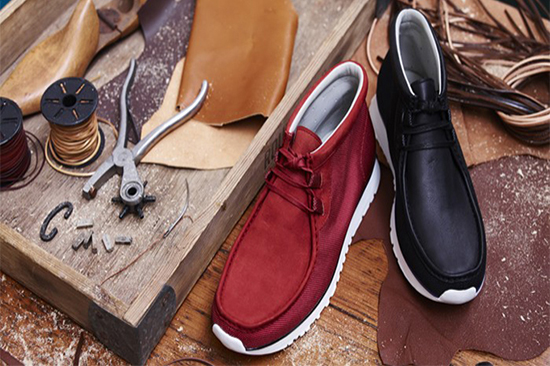Kano, Northern Nigeria’s foremost commercial hub, is home to a large leather industry. Its tanneries are a hive of activity every other day, with men working hides and skins into material suitable for cobbling into shoes and threading into bags. These traditional style tanneries are among the country’s oldest; but they’re also its biggest suppliers of local leather.
In fact, these humble-looking spaces are the centre of an industry worth at least ₦25 billion. They, along with the leather cobblers and stores across Nigeria, employ people in the hundreds of thousands. They’re also hanging bags on countless shoulders, and covering innumerable human feet.
Nigeria’s leather industry is a patchwork of production clusters concentrated in a number of major cities: Aba, Kano, Lagos, and Onitsha. These cities account for a large proportion of activity and income in the sector. There’s leatherworking and trading going on right across the country as well.
The making of Nigerian leather
Kano’s tanneries, like other leather processing centres in Nigeria, are at the starting point of the leather making value chain. They receive hides and skins stripped off slaughtered animals and are taken through the tanning process until they’re turned into leather. But it’s not just cattle, goat or sheep skin that’s used. Material from reptiles, including snakes and crocodiles, are also tanned.
Leather produced from these centres are fashioned into footwear, belts, bags and houseware by local workers, either in Kano or in other towns and cities to which they’re transported. They could also get exported to neighbouring countries, and perhaps as far afield as Europe. Some of the world’s biggest fashion brands are known to source their leather from Kano’s tanneries (in 2016, it was disclosed that Louis Vuitton was using leather supplied to it from northern Nigeria).
In the more likely situation when leather stays in Nigeria, it passes to local manufacturers who make it into finished goods. These could be small or large scale industrial producers (that’s two-thirds of players in production), or artisans. The bigger manufacturers are able to rely on automated production and don’t require a lot of labour to mass produce their shoes, belts or bags. But most producers still rely on manual processes.
Aba has a strong leather fashioning sector, represented by a number of leatherworking and trading clusters. These spots are located in various parts of the city, each housing thousands of producers operating within them. Footwear constitutes the largest fraction of items made in these locations; ladies’ bags, purses, belts and upholstery are also produced.
An industry’s challenges and hopes
Nigeria exports a lot of finished leather products. One estimate puts the annual revenue from this trade at about $100 million. But it imports about five times this value. Local producers have to compete with foreign manufacturers, many of them Asian. But it’s a market that’s expanding rapidly, one which local producers can exploit if they have the machines and power supply that’ll help them lower production costs.
These challenges may be resolved soon. The Bank of Industry is currently funding businesses in the industry and helping them procure the machinery they require to boost production and sales. They’re able to get loans of up to ₦50 million from the BOI if it deems them fit for assistance.
Nigeria is capable of taking up a greater share of the global leather industry. Its huge cattle population and the age-old tradition of leatherworking count in its favour. Hopefully, it’ll surmount the challenge of modernizing this proud heritage, and begin building a stronger future for the sector.
Feature image: fieldmann.com.ng

